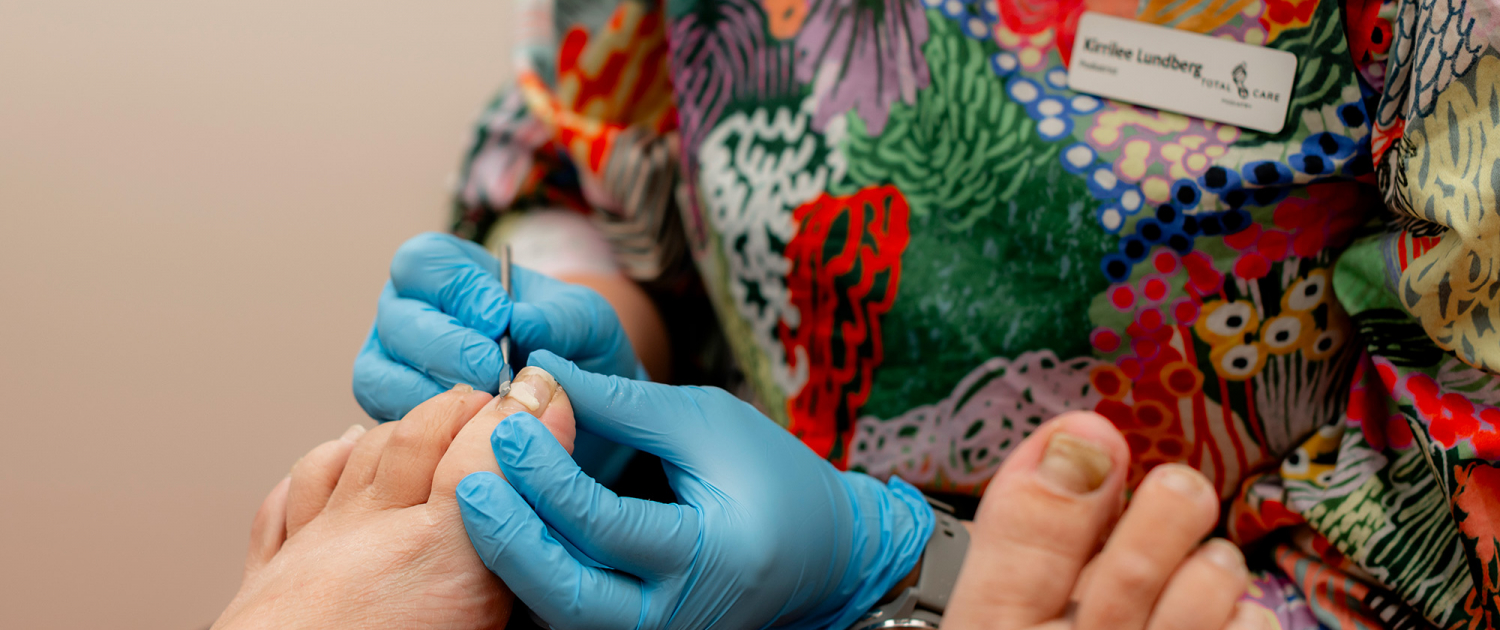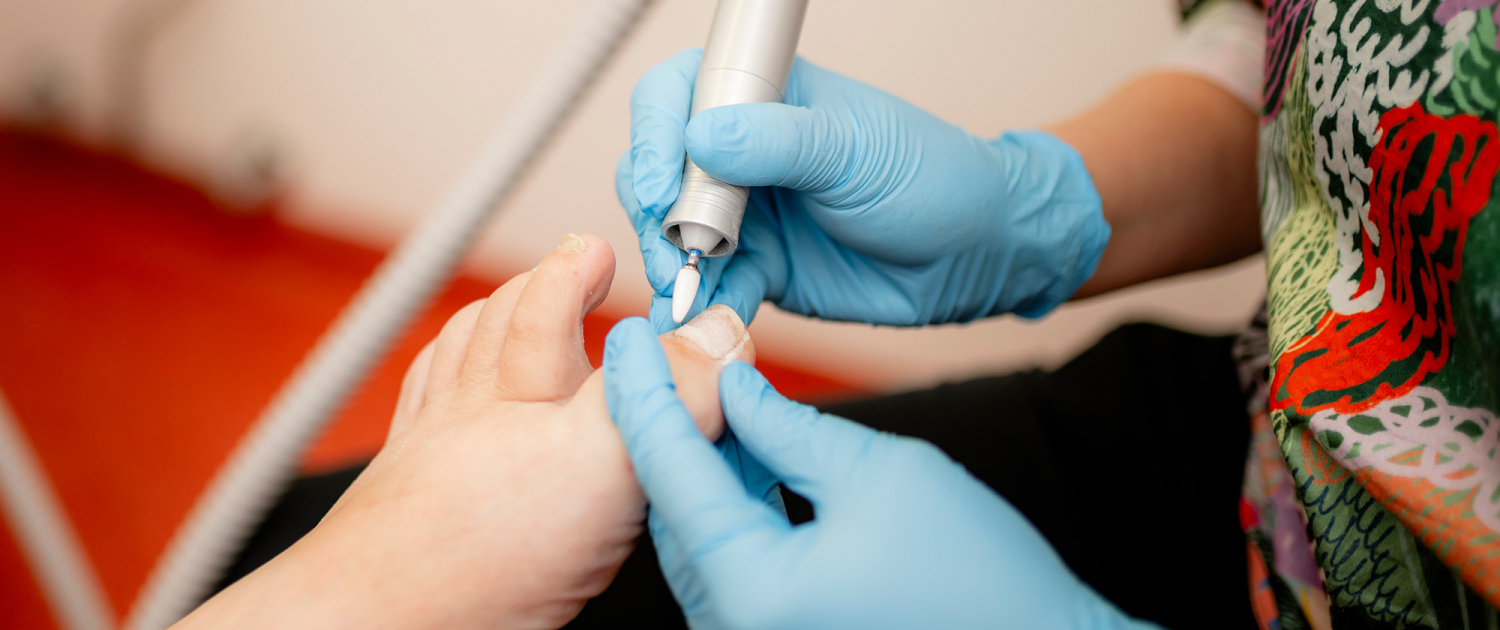Onychomycosis is a fungal infection of the nails which may involve any section of the nail, including the nail matrix, the nail bed, or the nail plate itself.
What are the most common problems with fungal nails
Sometimes chalky, white plaques form on the nail surface and as the infection progresses yellowish, brownish discolouration may be seen. Cell damage by the fungus to the foot of the nail can cause the nail to thicken and change shape. Often, callus (dead skin) is broken down and builds up beneath the nail plate.
How do these problems arise?
Fungi grow in warm, moist places. The fungus usually starts growing at the end of the nail plate and continues to spread under the nail. Of all fungal infections that occur on the body, nail infections are most difficult to prevent and treat.
How can they be treated?
Fungal infections of the nail are treated in two ways:
- Conservatively – which involves a visit to the podiatrist for cutting and thinning of the nails and use of an anti-fungal topical medication can be used if indicated by the symptoms.
- Surgically – some cases will require specific oral medication and surgery. Surgery is only considered when conservative treatment fails and oral medications are contraindicated due to potentially nasty side effects.
When should they be checked by a podiatrist?
If you are concerned that your nails may have a fungal infection, a Podiatrist can provide an assessment to determine if you have a fungal infection and begin treatment if necessary.
How can Total Care Podiatry help you?
At Total Care Podiatry, we can tailor a treatment plan which is specific to your needs in order to achieve the best possible outcome regarding your fungal nails.
WARNING
This information is for educational purposes only and is not intended to replace professional podiatric advice. Treatment will vary between individuals depending upon your diagnosis and presenting complaint. An accurate diagnosis can only be made following personal consultation with a Podiatrist.
Total Care Podiatry
209 Malop Street Geelong VIC 3220
Ph: 03 5223 1531
Fax: 03 5222 6766
Clinic hours
| Monday | 8.00am – 5.30pm |
|---|---|
| Tuesday | 8.00am – 6.00pm |
| Wednesday | 8.00am – 5.00pm |
| Thursday | 8.00am – 5.30pm |
| Friday | 8.00am – 4.30pm |

